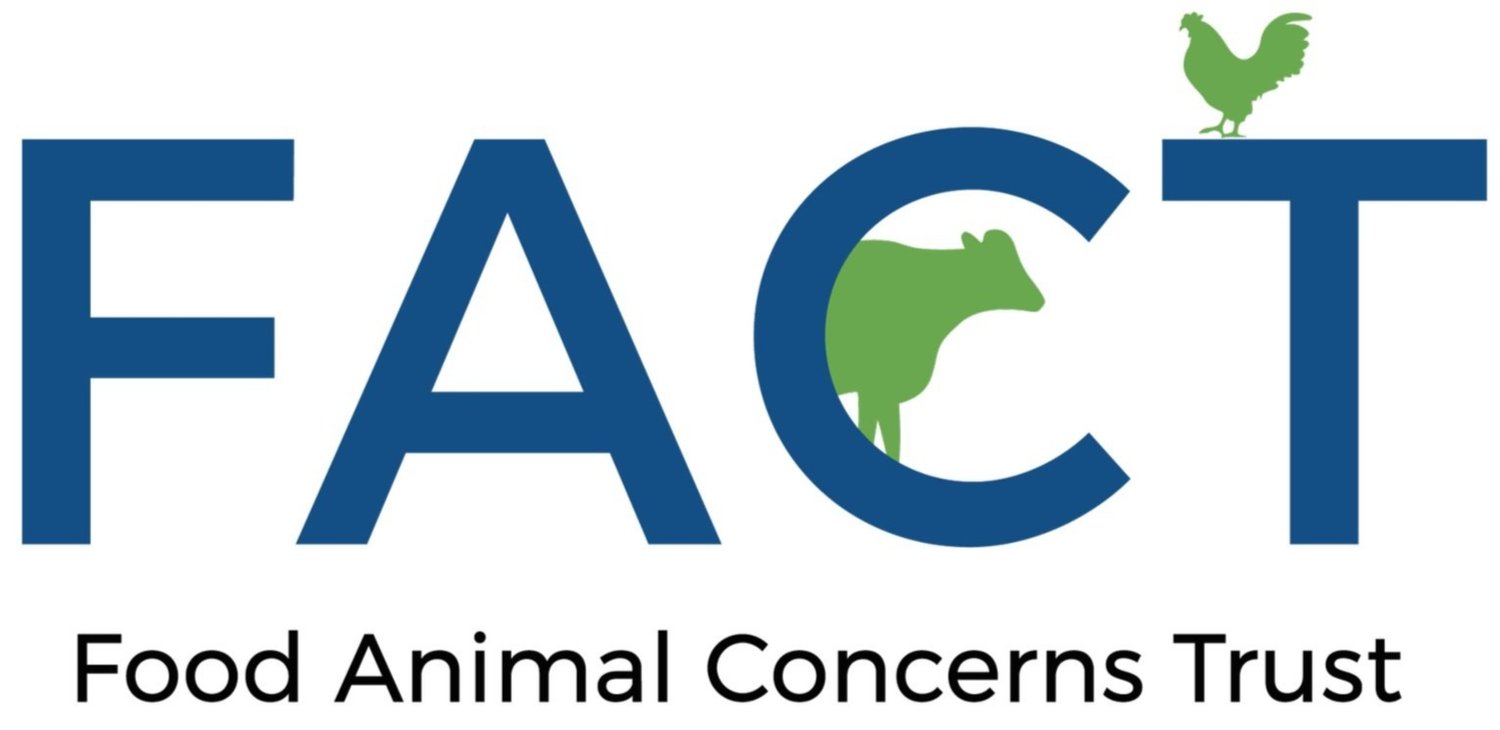A Summer Day in the Life of a Humane Livestock Farmer: Part 1
By Lydia Strand, FACT’s Humane Farming Assistant
FACT’s Humane Farming Team works with pasture-based livestock farmers all over the country. One of the valuable aspects of being part of this team is seeing what humane farming looks like throughout the country.
As part of our quarterly “A Day in the Life of a Humane Livestock Farmer” series, we’re taking you on a virtual tour of two farms over two days, spotlighting two of our farmers in greater detail.
This quarter we’re going to take a peek into the lives of two pasture-based livestock farmers who are also a mentee/mentor pair in our 2023 Humane Farming Mentorship Program. Today, we’ll visit Hen and Harvest Farm in Turlock, CA, spending the day with mentee Alexandria Miranda in the San Joaquin Valley, tomorrow we’ll head to the Pacific NW to visit Lydia Strand, mentor and FACT Humane Farming Program Assistant, at Lydia’s Flock Icelandic and Shetland Sheep in Bellingham, WA.
Enjoy your virtual visit!
A Summer Day on Hen and Harvest Farm
By Alexandria Miranda
When most people think of summer in California, they probably think of a sun-kissed kind of summer, one spent at the beach in Santa Cruz or cruising through LA in a convertible. Unfortunately, that’s far from reality for a farmer in California. Especially one in California’s massive San Joaquin Valley that runs up and down the state, centered between the Western coastal ranges and Eastern Sierra Nevadas. In our valley, the summers are harsh. We face multiple days in a row over 100 degrees and some as high as 110. Combine that with drought conditions (we haven’t seen rain for months now), dust, pollution, and increasing soil degradation from overproduction of mono-crops, and our summers just aren’t that much fun.
It’s a constant challenge to keep animals cool and healthy, especially on a pasture-raised laying hen farm like mine. On our small 5-acre farm, we check on our animals several times a day during the summer, refreshing their waters, refilling our duck’s kiddie pools, and treating them with cold or frozen fruits. What most people don’t know is that the heat can really stress a hen out and she will stop laying eggs to keep her internal body temperature down. That means less eggs, less profit, and more stress for the farmer.
Fortunately for our farm, during the summers we have access to irrigation water, which means every 10 days we can flood irrigate our pastures if needed. When it’s over 100 degrees, this really helps our animals stay cool and helps keep moisture in our soil so our forage can continue to grow, nourishing and cooling down our animals from the inside out.
On a typical summer day here at Hen and Harvest Farm, I wake up early and let the ducks out of their pasture so they can graze and roam and find the best shade throughout the day. I will check on the lambs and make sure they have clean water and fresh hay for breakfast. Any outside chores, like weeding, moving our mobile electric fences or coops, or filling up our range feeders I try to accomplish before 11 am, then it’s time to collect the first round of eggs from our 550 chickens and 100 ducks. I then head indoors for a break from the heat and lunch, followed by any indoor chores or computer work that needs to be done. But in the middle of the heat, I head back out again to refresh waterers, collect any remaining eggs and provide the hens with some cold treats.
The summer days are long and can be tiresome, but usually by July, we have a routine down and are accustomed to the heat. It’s not all bad though. Summer mornings are some of my favorites; rising early and moving animals with my herding dog as a companion and sitting with the hens as they cluck about their upcoming day or watching the lambs graze peacefully. And sometimes, just sometimes, I do get to go to the beach. But only after all my animals are cared for!


